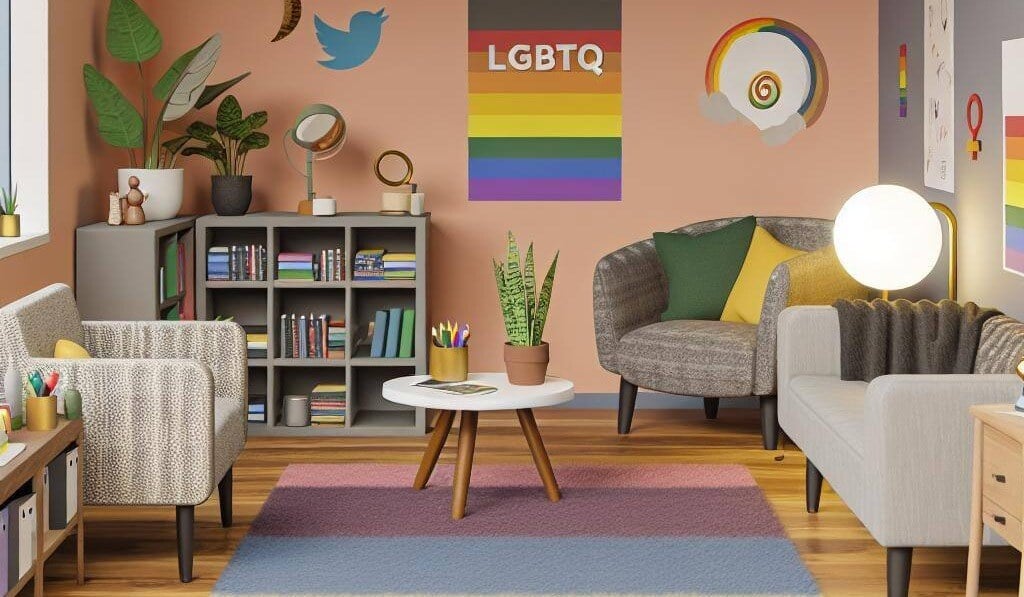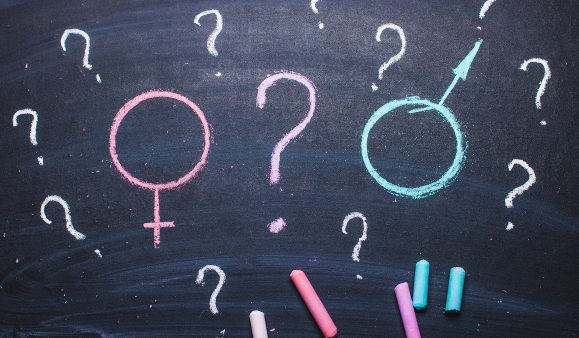Therapists and Transcare: An Interview with Zach Hebert, LPC, NCC, PhD
One of the greatest pleasures I have in life are the friendships I've made along the way in my journey to becoming a therapist. For the most part,...
7 min read
Jessi LaSalle, MS, LPC : May 22, 2024 2:29:28 PM

Discover clinical approaches and skills for effectively working with LGBTQ populations in therapy sessions.
Being a culturally competent mental health professional is crucial when working with LGBTQ populations. LGBTQ individuals face unique challenges and experiences that may not be fully understood by those who are not part of the community. By being culturally competent, mental health professionals can create a safe and inclusive space for their LGBTQ clients, where they feel heard, understood, and validated.
Cultural competence in working with LGBTQ populations goes beyond just knowledge and understanding; it is a continuous process of self-reflection and growth. It involves recognizing and challenging one's own biases and assumptions, actively seeking to unlearn harmful stereotypes, and embracing a mindset of openness and humility. By cultivating cultural competence in this way, mental health professionals can create a therapeutic environment where LGBTQ individuals feel truly seen and valued. This ongoing commitment to learning and growth allows for a deeper connection with clients, leading to more effective and meaningful support in navigating the complexities of their mental health and well-being.
Additionally, being culturally competent can help mental health professionals address the unique risk factors and dangers faced by LGBTQ individuals in society. LGBTQ individuals are more likely to experience discrimination, stigma, and social isolation, which can have a significant impact on their mental health. By understanding these challenges and their impact, mental health professionals can better support their LGBTQ clients and help them build resilience and coping strategies.
Working with LGBTQ populations requires specific clinical approaches and skills to address their unique needs and experiences. Some key approaches and skills include:
PFLAG National Glossary: Here you will find a comprehensive glossary created by PFLAG, "one of the first and largest organizations dedicated to supporting, educating, and advocating for LGBTQ+ people and their families." This list is inclusive of terms related to gender, identity, and sexuality.
GLAAD- Ally's Guide to Terminology: "Designed for new allies who want to support LGBT Americans but often face an array of confusing terminology and language,
this short guide offers an overview of essential vocabulary, terms to avoid, and a few key messages for talking about various topics." This list includes terminology for discussing marriage, equality, parenting, and legal issues.
Scarleteen: "You’ve just arrived at the largest resource online wholly dedicated to providing truly comprehensive and highly inclusive sex and relationships education, information and support that centers young people. You can find out more about us here, or start exploring the site and its services here."
Acadiana Queer Collective: An LGBTQ+ organization in Acadiana whose mission is "To Connect and support the Acadiana LGBTQ+ community so that all queer people feel included and valued."
University of Louisiana at Lafayette: Acadiana's college campuses have several LGBTQ-supportive clubs and organizations that can be useful for clients.
PFLAG Lafayette: "PFLAG Lafayette offers free support groups for Lafayette, LA area parents, families, friends and allies of LGBTQ persons. Whether it is a family in distress because a member just came out, a coworker announcing a gender transition, or someone who has questions, PFLAG Lafayette is there for you. We educate the community through outreach at public events such as PRIDE and LGBTQ related events. We encourage acceptance in schools. We make our voices heard to school board member and other politicians."
Acadiana Cares: Local Health organization which offers: Primary care for LGBTQ patients and their families, Information, Referral and Patient Navigation for LGBTQ patients and consumers, Outreach and Health Education for LGBTQ communities,
and Advocacy for LGBTQ Health Equity with local and national policymakers, researchers, and educators.
Monet: "I think there’s an exceptionally appropriate connection between specializing in the LGBT community while having a Rogerian/Person-Centered approach. Meeting clients where they are in their sexual journey requires unconditional positive regard and can even be a radical notion to a person who has only experienced strife and pain in their development."
Ashley: "When using ERP with clients with gender or sexual-themed OCD, I want to make sure that in doing exposures I am not causing discrimination or harm to already discriminated against populations, therefore it's important to approach these exposures from a social justice-oriented lens. Use this link here for more information.
Jessi: "When working with LGBTQ individuals or couples, I adopt a systemic and Adlerian perspective to understand the whole picture of my clients and their unique experiences. I strive to comprehend an individual's way of life, connections, encounters, diversity, and personality framework to gain a better understanding and effectively address their needs. Many clients are still working to understand themselves and their identity, and I am committed to supporting and encouraging that exploration every step of the way."
By employing these clinical approaches and skills, mental health professionals can provide effective and affirming therapy for LGBTQ populations, promoting their mental health and well-being.
Psychometric assessments and scales can be valuable tools in therapy when working with all clients, including LGBTQ populations. These assessments can help mental health professionals gain a deeper understanding of their clients' gender identities, sexual orientations, and related experiences. Here are some examples of psychometric assessments and scales that can be utilized:
Monet: The Gender Unicorn is a helpful infographic that explains the incredibly nuanced concept of gender
Jessi: Several Identity Diagrams including The Gender Unicorn and The Genderbread Person were created for therapists to tailor to the specific needs and age range of clients. You can find a comprehensive list here at LGBTQIA+ Fandom.


These assessments can be utilized during therapy to facilitate self-reflection, exploration, and understanding with clients. They can also be a starting point for meaningful discussions about gender identity, sexuality, and related topics. It is crucial for mental health professionals to ethically employ these assessments, ensuring a comprehensive understanding of the required parameters, skills, and training needed to effectively utilize these scales. Sensitivity should also be prioritized, ensuring that clients feel at ease and empowered throughout the assessment process.
Utilizing mental health resources and worksheets related to gender, identity, diversity, and sexuality is essential in fostering a supportive and inclusive therapeutic environment for LGBTQ populations. These resources play a crucial role in enhancing therapy sessions by providing clients with additional support, offering psycho education on LGBTQ-related topics, and creating opportunities for self-reflection and personal growth. By incorporating a variety of mental health resources and worksheets, mental health professionals can empower LGBTQ clients to explore their identities, navigate challenges, and promote their overall well-being.
Examples of mental health resources that can be utilized include LGBTQ-affirming books and articles, which offer valuable insights into LGBTQ experiences, mental health, and resilience. These resources can serve as educational tools and sources of inspiration for clients seeking to better understand themselves and their unique experiences. Additionally, identity exploration worksheets can guide clients in reflecting on their gender identity, sexual orientation, and other aspects of their identity. These worksheets may include prompts and activities that encourage self-discovery, self-acceptance, and personal growth.
Support group information is another valuable resource that mental health professionals can provide to LGBTQ clients. By connecting clients with LGBTQ support groups or virtual communities, therapists can help clients build a supportive network outside of therapy sessions. These groups offer a sense of community, understanding, and solidarity, which can be instrumental in promoting mental wellness and resilience.
Moreover, personalized self-care and coping strategy worksheets designed for LGBTQ individuals can aid clients in creating customized tools to effectively handle stress, enhance resilience, and prioritize their overall well-being. These worksheets may consist of exercises focusing on self-care rituals, mindfulness practices, and coping mechanisms specifically tailored to address the unique challenges encountered by LGBTQ individuals. By empowering clients to actively engage in their mental health and well-being, these resources play a vital role in supporting their journey towards self-acceptance, personal growth, and holistic mental wellness.
Monet: I'd recommend the works of James Baldwin, Audre Lorde, and bell hooks.
Ashley- Thriving in Relationships When You Have OCD (Book)
Monet: TherapistAid.Com has a cool resource with Coming Out-related questions that can be processed in session
PFLAG Lafayette offers Support Groups for Parents of Gay, Lesbian and Trans Children. Louisiana Trans Advocates offers peer lead support groups and the Authenticity Center along with Counseling and Recovery Guidance and River Oaks Hospital will be starting a support group for LGBT teens in June 2024.
Jessi: Positive Psychology has several interesting articles related to self-care and coping strategies to assist with all age ranges and resource links in their articles.
By incorporating these mental health resources and worksheets into therapy sessions, mental health professionals can empower LGBTQ clients to further explore their identities, develop coping strategies, and find additional support outside of therapy.

One of the greatest pleasures I have in life are the friendships I've made along the way in my journey to becoming a therapist. For the most part,...

Sex related issues are sensitive topics that may be difficult for individuals to discuss. That is why it is important for therapists to possess the...

When working with clients from the LGBT community, it's important to remember your professional values and act ethically. This means following a code...